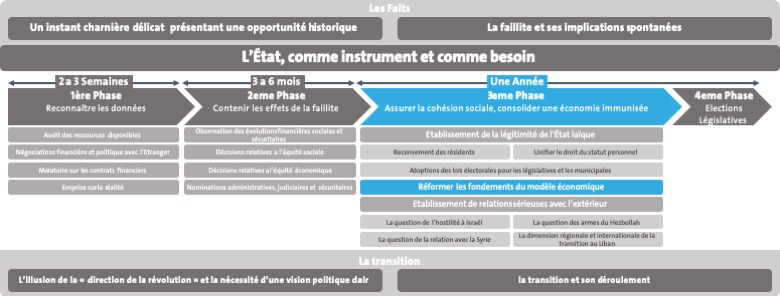Amending the foundations of the economic systems
Meanwhile, the government would adjust the foundations of the economic system that have been established in the country since the civil war, but not by repeating slogans about rentier economy, productive economy, job creation, etc., but, rather, through an organizational endeavor. The economic system is determined by the distribution of manpower and capital among sectors and by their levels of efficiency as compared with foreign efficiency. The labor and capital engines are distributed according to prices and costs, and according to sectoral policies, public investments, distribution mechanisms and tax systems. All these areas would be covered by standard and legislative decrees.
The crisis is manifested through a sudden drop in both the actual incomes and the domestic prices. The first downturn threatens to increase poverty and migration, and the second brings in the threat of selling assets at the lowest prices. The argument that a “spontaneous correction” would take place because of the shrinking consumption, based on the neoliberal approach, has failed, as experience confirms. Decisive policies would be adopted during the transitional period to prevent an adaptation to the crisis from reproducing its very causes after society incurs additional losses. This is what is meant by the statement that the distribution of losses should be fair but also meaningful.
It is in our interest to curb youth immigration. This does not mean that the elderly are of no concern, but faced with a trade-off, we give preference to the youth in this respect. We are concerned that enterprises capable of export do not collapse. We are interested in trade agreements that enhance the external demand for our production and also enhance our production capabilities. It is in our interest as well that the decline in domestic asset prices translates into a reduction in production and living costs and not in a liquidation of assets and an increase in immigration.
It will not be easy to move from an economy built on exporting the youth and begging and foreign dependency to a capable one. Many people will lose their work, and whole sectors will be impacted. Moving from one profession or sector to another is not a technical process. It requires time, skills, and changes in work and living patterns. We have to deal with our actual society — human beings, women and men, educated and uneducated, poor and rich, Lebanese and non-Lebanese — and not regard our community as sects. Such a transition requires ongoing due diligence, and we mean to ensure it.
Click on the diagramme to return to the table of content

